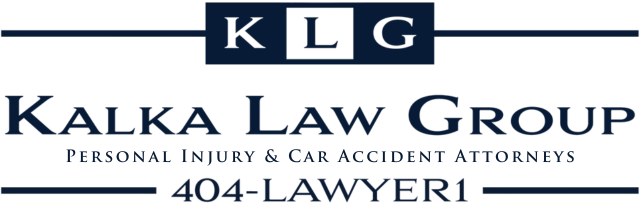What is the Average Herniated Disc Settlement Value in Georgia?
If you’ve been in an accident in Georgia and suffered an impact or “jerking” type injury -along with “whiplash” you may have been diagnosed with a herniated disc injury. These injuries are often quite painful, can be long-lasting, and occasionally require surgery to correct. Because of the varied treatment options, it is imperative that you work with a specialist physician and/or surgeon and hire an expert herniated disc settlement attorney in Georgia to help negotiate your settlement and payout.
On This Page
- What is the Average Herniated Disc Settlement Value in Georgia?
- What Are The Payout Ranges For Auto Accident Herniated Disc Settlements?
- Recent Examples of Herniated Disc Settlement Amounts Near You in Georgia
- $2,255,000 Rear-End Bus Accident Auto Accident Herniated Disc Settlement in Georgia
- $575,000 Multiple Herniated Disc Car Accident Settlement in Georgia
- $340,000 Rear-End Crash Herniated Disc Car Accident Settlement in Georgia
- What Is A Herniated Disc?
- How Does A Herniated Disc Happen & How Is It Treated?
- Is A Herniated Disc A Lifelong Injury?
- Contact the Experienced Georgia Herniated Disc Car Accident Settlement Lawyers Near You at Kalka Law
What Are The Payout Ranges For Auto Accident Herniated Disc Settlements?
How much compensation you get for a herniated disc injury settlement in Georgia varies based on the unique circumstances of each situation and the severity of your injuries. Based on our own settlement data on this page, the average herniated disc injury settlement is between $340,000 to $2,255,000. Settlements depend greatly on the unique circumstances of each case, which is why there is no accurate or realistic average herniated disc settlement amount for accidents in Georgia.
Recent Examples of Herniated Disc Settlement Amounts Near You in Georgia
$2,255,000 Rear-End Bus Accident Auto Accident Herniated Disc Settlement in Georgia
One of our clients was driving to work in Marietta when he was rear ended by a bus. He had to endure multiple surgeries to repair herniated discs. The team at Kalka Law Group was able to recover a $2,255,000 settlement on his behalf.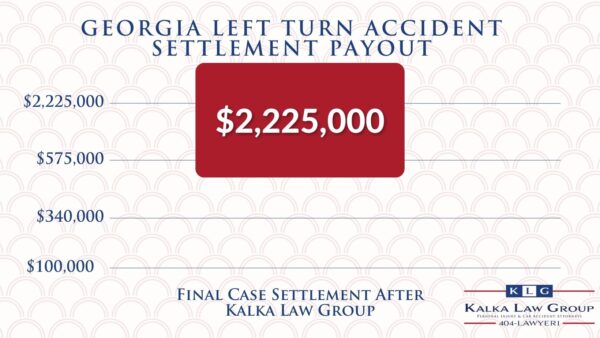
$575,000 Multiple Herniated Disc Car Accident Settlement in Georgia
Another client was in an automobile accident on the Buford Highway. In the car accident, he suffered multiple herniated discs from the impact and required multiple surgeries. Our team recovered $575,000 to cover the cost of care and damages.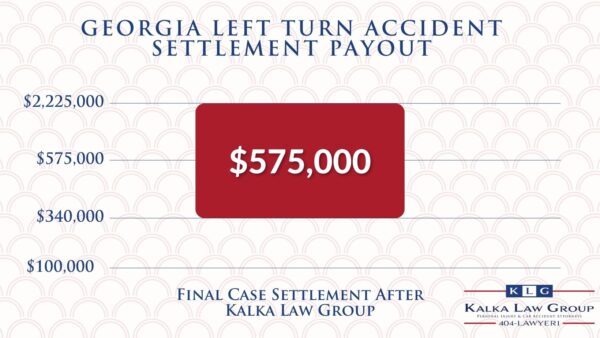
$340,000 Rear-End Crash Herniated Disc Car Accident Settlement in Georgia
A client was rear-ended in a car accident on the GA 120 loop in Marietta and suffered a herniated L5 and S1 disc (lower back and sciatic spine). The injuries required surgery to repair. The Kalka Law Group recovered $340,000 for our client after a very low opening offer from the insurance company of $135,000.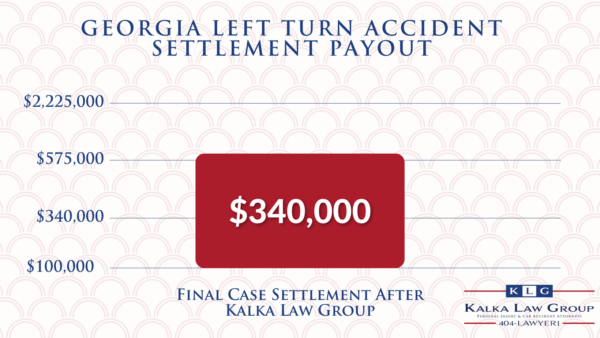
What Is A Herniated Disc?
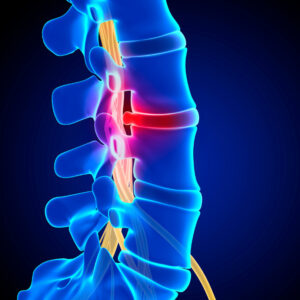 A herniated disk, also known as a slipped or ruptured disk, is a condition that affects one of the rubbery cushions, called disks, found between the stacked bones in the spine, known as vertebrae. Each spinal disk consists of a soft, jelly-like center called the nucleus, surrounded by a tougher, rubbery exterior called the annulus. When a herniated disk occurs, it means that some of the nucleus has pushed out through a tear in the annulus.
A herniated disk, also known as a slipped or ruptured disk, is a condition that affects one of the rubbery cushions, called disks, found between the stacked bones in the spine, known as vertebrae. Each spinal disk consists of a soft, jelly-like center called the nucleus, surrounded by a tougher, rubbery exterior called the annulus. When a herniated disk occurs, it means that some of the nucleus has pushed out through a tear in the annulus.
This condition can occur in any part of the spine, but it is most common in the lower back. Depending on the location of the herniated disk, it can lead to symptoms such as pain, numbness, or weakness in an arm or a leg. It’s important to note that not everyone with a herniated disk experiences symptoms, and for those who do, the symptoms often improve over time. In most cases, surgery is not necessary to alleviate the issue.
How Does A Herniated Disc Happen & How Is It Treated?
When an accident happens, like a car crash, a slip and fall, or a pedestrian accident, a disc in your spine can get pushed out of place because of the sudden jolt from the impact. This puts too much pressure on the disc. A disc can also get pushed out of place if you lift a heavy object the wrong way or twist your body too much.
The treatment for a herniated disc depends on the severity of the condition, the symptoms it is causing, and the patient’s overall health. Here are some common approaches to treat herniated discs:
Conservative Management:
- Rest: Taking it easy and avoiding activities that exacerbate the symptoms.
- Pain Medications: Over-the-counter or prescription pain relievers, such as non-steroidal anti-inflammatory drugs (NSAIDs) or muscle relaxants.
- Physical Therapy: Exercises and stretches to improve strength, flexibility, and posture, which can help reduce pain and improve mobility.
- Heat and Cold Therapy: Applying heat or cold to the affected area can provide relief.
Epidural Steroid Injections:
- Corticosteroid injections into the epidural space around the affected nerve can reduce inflammation and alleviate pain.
Medication:
- In some cases, doctors may prescribe stronger pain medications or muscle relaxants to manage severe pain.
Chiropractic Care:
- Spinal manipulation by a chiropractor can sometimes help alleviate pain and improve spinal alignment.
Acupuncture:
- Some people find relief from herniated disc pain through acupuncture, which involves the insertion of thin needles at specific points on the body.
Lifestyle Modifications:
- Maintaining a healthy body weight, adopting good posture, and avoiding activities that worsen the condition can help prevent further injury and discomfort.
Surgical Options:
Surgery is typically considered when conservative treatments are not effective, or if the herniated disc is causing severe pain, weakness, or loss of bladder or bowel control. Common surgical procedures include:
- Microdiscectomy: The removal of the portion of the disc that is pressing on the nerve.
- Laminectomy: Removal of a portion of the vertebral bone (lamina) to create more space for the affected nerve.
- Spinal Fusion: Joining two or more vertebrae together to stabilize the spine.
The choice of treatment depends on the individual’s condition, the location of the herniated disc, the severity of symptoms, and the response to conservative therapies.
Is A Herniated Disc A Lifelong Injury?
A herniated disc does not necessarily result in a lifelong injury, but its long-term impact depends on factors such as the severity of the injury, the treatment an individual receives, and how well they manage their condition. The long-term outcome of a herniated disc varies. Some individuals fully recover and never experience significant problems again, while others experience periodic flare-ups or persistent symptoms. It’s essential to note that, even after recovery, there remains a risk of re-injury or the development of degenerative changes in the spine over time.
Whether a herniated disc becomes a lifelong issue or not relies on individual factors, the nature of the injury, and the effectiveness of treatment and ongoing self-care.
To qualify for disability benefits, including permanent disability benefits, due to herniated discs or any other medical condition, you typically need to meet certain criteria. These criteria often include:
- Medical Evidence: You must provide medical evidence that substantiates the severity and limitations caused by your herniated discs. This may include medical records, imaging studies (e.g., MRI or X-rays), and documentation from healthcare professionals.
- Work Limitations: You need to demonstrate that your herniated discs significantly impact your ability to perform substantial gainful activity (work). If your condition makes it impossible for you to work at your previous job or in any other substantial gainful work, you may be eligible for disability benefits.
- Duration: To qualify for permanent disability benefits, your condition must be expected to last for at least 12 months or be terminal.
- Medical-Vocational Evaluation: Social Security and disability agencies will consider your age, education, work history, and transferable skills to determine if you can perform any other type of work, given your limitations.
It’s important to note that not all herniated discs will automatically qualify for disability benefits, and each case is evaluated individually. Certainly, a long-term disability caused by an accident that resulted in a herniated disc could impact your settlement. Our team can help you navigate the complexities of diagnoses, care, and settlement options to ensure your long-term needs are taken care of.
Because of the wide range of treatment options, and the instance of surgery being rare, herniated disc injury settlements can vary greatly. Having an attorney with experience in Georgia herniated disc settlements & injuries on your side can make a big impact on your negotiations with insurance companies.
Contact the Experienced Georgia Herniated Disc Car Accident Settlement Lawyers Near You at Kalka Law
Herniated disc injuries are a serious concern resulting from various accidents, including car accidents, truck accidents, motorcycle accidents, slip and fall incidents, and work-related accidents. Early intervention and appropriate care can significantly impact the recovery process, providing hope for a positive outcome and a fulfilling life despite the challenges posed by single or multiple herniated disc injuries.
If you or a loved one have been injured in an accident and have suffered a herniated disc – reach out to the experienced disc injury settlement experts at Kalka Law for assistance. Contact us today or call us at (404) 529-9371 for a 100% free consultation. As always, we only get paid if we win!
If you are interested in reviewing average settlement amounts for other types of Georgia accidents see our additional resources on the matter:
- What are the Average Slip and Fall Settlement Amounts in Georgia?
- What are the Average Uber Passenger Accident Settlement Amounts in Georgia?
- What are the Average Lyft Passenger Accident Settlement Amounts in Georgia?
- What are the Average Hit by Drunk Driver Settlement Amounts in Georgia?
- What are the Average Rear End Collision Settlement Amounts in Georgia?
- What are the Average Left Turn Settlement Amounts in Georgia?
- What are the Average Injured in a Car Accident as a Passenger Settlement Amounts in Georgia?
- What are the Average Car Accident Settlement Amounts in Georgia?
- What are the Average Truck Accident Settlement Amounts in Georgia?
- What are the Average Motorcycle Accident Settlement Amounts in Georgia?
- What are the Average Hit by Car on Bike Settlement Amounts in Georgia?
- What are the Average Bus Accident Settlement Amounts in Georgia?
- What are the Average Back Injury in a Car Accident Settlement Amounts in Georgia?
- What are the Average Broken Sternum Car Accident Settlement Amounts in Georgia?
- What are the Average Personal Injury Settlement Amounts in Georgia?
- What are the Average Pain and Suffering Settlement Amounts in Georgia?
- What are the Average Spinal Fusion Lawsuit Settlement Amounts in Georgia?
- What are the Average Cervical Spine Injury Settlement Amounts in Georgia?
- What are the Average Brain Injury Settlement Amounts in Georgia?
- What are the Average Soft Tissue Back Injury Settlement Amounts in Georgia?
- What are the Average Wrongful Death Lawsuit Payout Amounts in Georgia?
